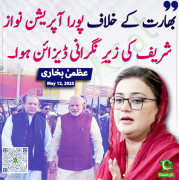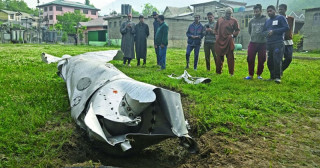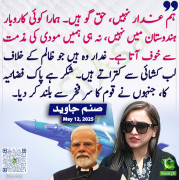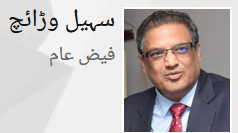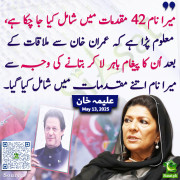You are using an out of date browser. It may not display this or other websites correctly.
You should upgrade or use an alternative browser.
You should upgrade or use an alternative browser.
The Economist has declared karachi stock exchange as the best market
- Thread starter the.paki
- Start date
SMAAS
Senator (1k+ posts)
Re: Economist has declared karachi stock exchange as the best market
AS RICH countries’ economies slump, brave investors looking for fast returns may be tempted to look further afield. Which of the world’s more exotic markets offer the best returns? Mexico has developed a following among investors bored of Brazil. The Philippines has been on a roll too, recently winning its first ever investment-grade credit rating. But virtually everywhere is beaten hands down by the tiny Karachi Stock Exchange (KSE), which has risen by 40% so far this year in local currency terms. Of stock markets tracked by The Economist, only Japan’s has performed better.
This may not be what most people associate with Pakistan’s most populous city, which is more famous for terrorist explosions than economic booms. The exchange’s strong performance is partly due to improving conditions in Pakistan, including a reasonably free and fair election in May which was followed by a peaceful handover of power. Meanwhile, the slowing down of the BRIC economies has driven investors to try out ever more exotic markets. All the same, the KSE’s soaring growth is surprising: Pakistan’s economy is expected to grow by only about 3.6% this year, much less than many other emerging economies. And the stock exchange itself—which has a market capitalisation of just $52.7 billion—is a tricky place to invest, with only 60 of its 569 listed companies trading regularly.
Part of the Karachi exchange’s lightning growth is due to an unusual amnesty enacted in January 2012. The authorities declared that from that date, investors would be allowed to buy shares with no questions asked about where their money came from. The amnesty, which is due to last until June 2014, is designed to encourage people with undocumented funds to invest them in the market, thus bringing the cash into the formal economy and within reach of the taxman. It seemed to work: after the amnesty’s introduction, the average daily volume traded on the KSE more than doubled.The boom is good news for investors. But some wonder if there may be a downside to relaxing the rules on checking the origins of the money being pumped into the bourse. Pakistan has more than its fair share of corruption: it falls within the bottom quarter of a worldwide ranking compiled by Transparency International, an anti-graft watchdog. If people want to launder their ill-gotten gains, the authorities have their work cut out to stop them: flagging up suspicious activity is left to banks and brokers. The KSE’s growth is real enough, but the source of the rupees fuelling its boom is not always clear.
http://www.economist.com/node/21582383
This may not be what most people associate with Pakistan’s most populous city, which is more famous for terrorist explosions than economic booms. The exchange’s strong performance is partly due to improving conditions in Pakistan, including a reasonably free and fair election in May which was followed by a peaceful handover of power. Meanwhile, the slowing down of the BRIC economies has driven investors to try out ever more exotic markets. All the same, the KSE’s soaring growth is surprising: Pakistan’s economy is expected to grow by only about 3.6% this year, much less than many other emerging economies. And the stock exchange itself—which has a market capitalisation of just $52.7 billion—is a tricky place to invest, with only 60 of its 569 listed companies trading regularly.
Part of the Karachi exchange’s lightning growth is due to an unusual amnesty enacted in January 2012. The authorities declared that from that date, investors would be allowed to buy shares with no questions asked about where their money came from. The amnesty, which is due to last until June 2014, is designed to encourage people with undocumented funds to invest them in the market, thus bringing the cash into the formal economy and within reach of the taxman. It seemed to work: after the amnesty’s introduction, the average daily volume traded on the KSE more than doubled.The boom is good news for investors. But some wonder if there may be a downside to relaxing the rules on checking the origins of the money being pumped into the bourse. Pakistan has more than its fair share of corruption: it falls within the bottom quarter of a worldwide ranking compiled by Transparency International, an anti-graft watchdog. If people want to launder their ill-gotten gains, the authorities have their work cut out to stop them: flagging up suspicious activity is left to banks and brokers. The KSE’s growth is real enough, but the source of the rupees fuelling its boom is not always clear.
http://www.economist.com/node/21582383
shassan655
Senator (1k+ posts)
Re: Economist has declared karachi stock exchange as the best market
" The Economist" walay dinn maay bhee tharraa peetay haay
" The Economist" walay dinn maay bhee tharraa peetay haay
-
-
-
-
کنول شوزب علیمہ خان کے خلاف میدان میں
20 | خبریں -
Imran Khan's sons break their silence
27 | FORUM -
سیاست کی اندھی محبت۔۔۔۔۔سہیل وڑائچ
4 | FORUM
-
-
-
کنول شوزب علیمہ خان کے خلاف میدان میں
20 | خبریں
-
© Copyrights 2008 - 2025 Siasat.pk - All Rights Reserved. Privacy Policy | Disclaimer|



